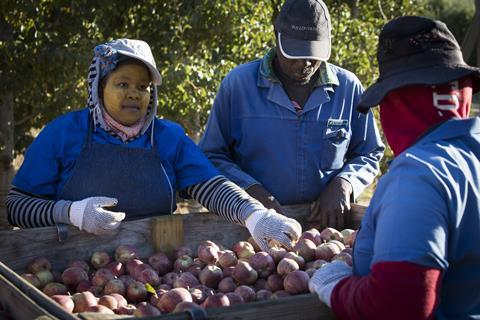Issues passionate entreaty to government to form a coalition to further address this issue

Partners in Agri Land Solutions (Pals), a recently-created private sector initiative in South Africa set up to promote land reform, has made a passionate plea to the country’s new minister of land reform for positive and effective change following the recent national elections.
Pals, which has already been recognised as being one of the most dynamic land reform initiatives in the country, said there are now already more than 50 success stories born out of the Initiative. ”This is a coalition in the real sense of the word. Irrespective of political beliefs, they all believe in Pals,” the organisation said in its latest newsletter.
Land is an emotional issue in South Africa – but Pals has called on the new minister of land reform and Rural Development, Mwzanele Nyhontso, to form an apolitical coalition with the organisation.
“There is one crucial thing all must agree on to make South Africa work. It needs land reform and not expropriation,” Pals said. “The right land reform does result in more inclusivity with more farmers across the board, producing more food, creating more work, feeding more people. That’s the whole-in-one South Africa must achieve.”
Pals noted that despite various government initiatives adopted since 1994, land reform has yet to be successfully implemented in South Africa. The erstwhile LRAD policy was replaced by the Pro Active Land Acquisition Strategy under which the state became the owner of thousands of hectares of agricultural land.
“Many of these farms were allocated to beneficiaries without the necessary support. The state does not have the requisite capacity to assist, mentor and support beneficiaries. Owning land doesn’t make you a farmer. When agricultural land does not produce, the food basket gets emptier. And jobs less,” Pals said.
The goal, Pals continued, is to build a sustainable, more inclusive and safer agricultural society. “It’s about the processing and facilitation of successful partnerships between existing commercial and new-era farmers to boost economic growth, job creation, food security, stewardship and social harmony.”
Pals said this should be an inclusive process where the greater community gets involved, working together to facilitate projects to inspire people on the ground level. “Everybody gets involved, irrespective of political beliefs, religion or race. We all need to eat,” it stated.
In the recent cabinet reshuffle in South Africa the portfolios of agriculture and land affairs were separated into two ministries.
Thoko Didiza, former minister of agriculture, land reform and rural development stated that initiatives like Paul, where emerging farmers and commercial farmers are forming partnerships, are bearing fruit in addressing binding constraints. Even the country’s President, Cyril Ramaphosa, stated in Parliament that “the Pals initiative is a practical example of inclusive growth and cooperation.”
Having started in one of South Africa’s best known fruit growing regions, the Koue Bokkeveld in the Ceres region, Pals projects are now established throughout the country.



